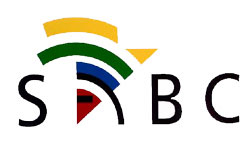
Once again, another SABC board has been dissolved, the second in five years. What explains the broadcaster’s ongoing instability?
Some clues are provided by several board members’ resignation letters and statements. David Niddrie blamed the instability on the failure of oversight structures — including parliament and the Department of Communications — to stem corporate governance violations.
Suzanne Vos made reference to ministerial interference in SABC affairs and unilateral decision-making by the then chair, Ben Ngubane. Others have made similar complaints.
It is as though the SABC has been set up to fail. To understand how and why this is so, it is necessary go back into the SABC’s recent history.
The early period of the SABC ’ s transformation, from 1994 to 1996, was an immensely hopeful one. But it was cut short when, in response to a financial crisis, the government adopted the (largely) neoliberal Growth, Employment and Redistribution (Gear) plan with the aim of stabilising the currency, which led to increased inequality and growing social conflict.
The roots of the SABC’s recent crises can be traced back to this period.
In line with Gear logic, broadcasting policymakers and practitioners pursued four strategies to “neoliberalise” the SABC.
The first strategy was to corporatise the organisation to free the state from having to fund it. This move entrenched a confused mandate that lent itself to institutional instability.
The broadcaster’s dependence on commercial funding also made it susceptible to elite capture.
The second strategy was to increase governmental control over the broadcaster to keep it “on side” with the government in the face of social conflict. The articles of association gave the minister of communications extensive powers over the SABC and set the stage for intolerable levels of ministerial interference under the guise of oversight.
In addition, the minister usurped the board’s right to appoint the SABC’s three top management positions. This had serious implications for the organisation’s editorial independence, because the CEO is also the editor-in-chief and the chief operating officer has taken charge of news and current affairs.
These provisions undermined the separation of powers and functions between the SABC and the executive. They are almost certainly unlawful, because they violate the requirement in the Broadcasting Act for the board to control its own affairs. Inappropriate political deployments have also caused havoc at the broadcaster.
The third strategy — pursued mainly by the SABC itself — was to save costs by centralising its operations, making the broadcaster less accessible to its audience. It closed several provincial offices and regional windows and cut back local content when its financial fortunes waned.
The fourth strategy was to reduce public accountability. In the absence of substantive accountability, bullies can flourish and the SABC has had its fair share.
These four strategies entrenched structural weaknesses in the SABC. Appointing a new board and management — without addressing these weaknesses — will simply lead to more good people of principle resigning in frustration.
President Jacob Zuma’s rise to power brought hope that the deficiencies of his predecessor’s “1996 class project” would be addressed, but largely this was not to be.
Once again there is a mounting social crisis at the base of society and protests have become widespread.
It can be surmised that — in spite of the state’s developmental character — the SABC’s crises continue because they serve the ruling elite, who could lose a great deal if the country had an independent, accessible public broadcaster.
The crises make the case for greater government control easier. They also prevent a public broadcaster from coming into being that allows South Africa to see itself accurately and confront its most pressing problems. It cannot be coincidental that the communications parastatals that promised a more egalitarian, democratic communications system are largely weak, have too few resources and lack real power.
The main reason why the SABC remains trapped in crisis mode is that those who benefit from a weakened SABC are more powerful and well organised than those who do not.
It is not enough simply to argue for public broadcasting principles, because arguments can be ignored. Those who value these principles need to organise to bring them about. A commitment to democracy demands nothing less.
Written by: Jane Duncan
- This article was published on Sunday Times.
